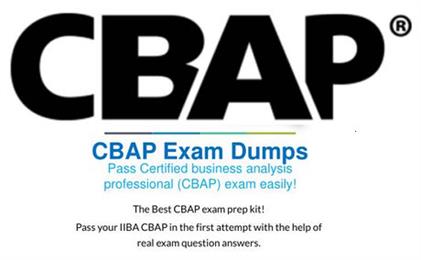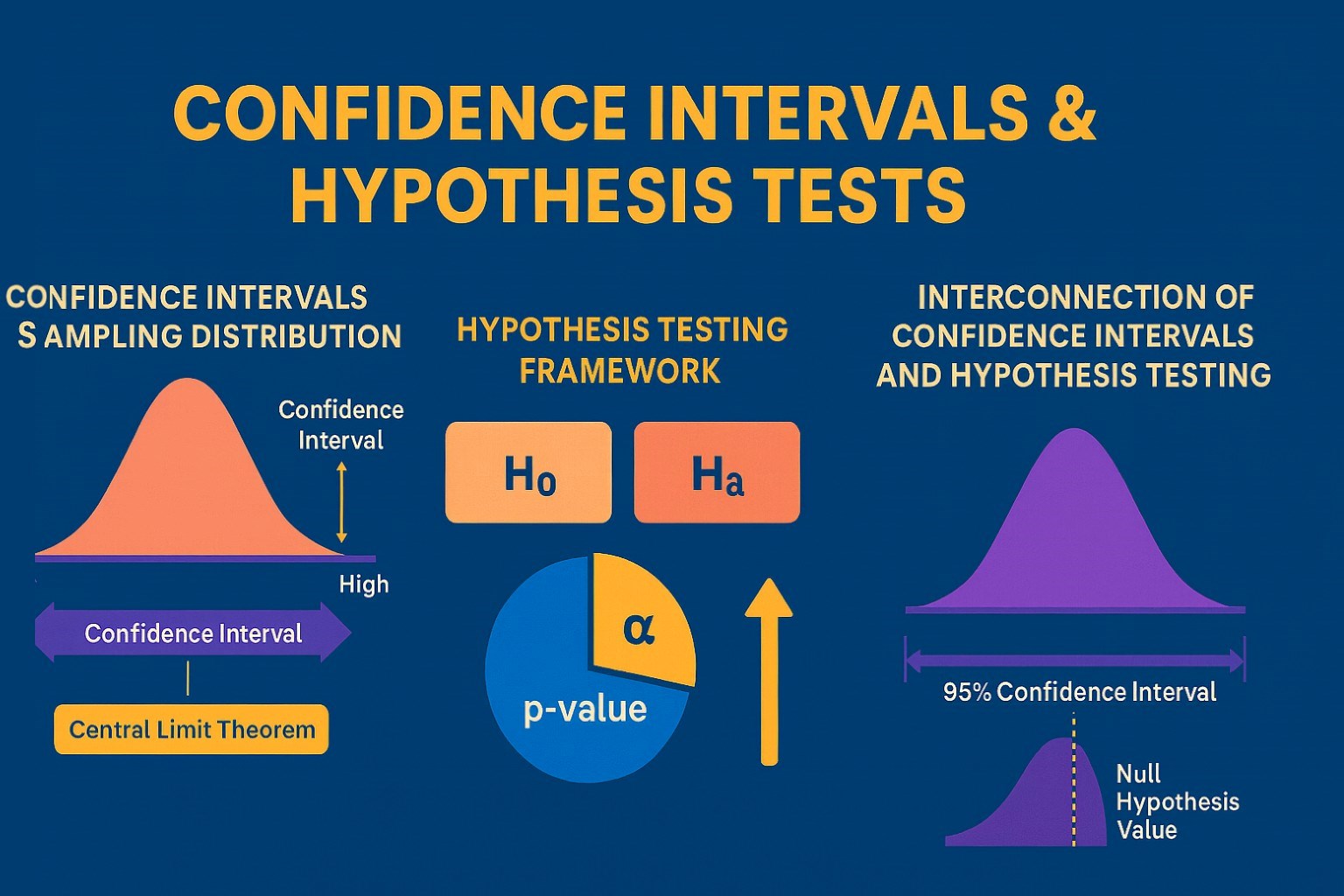8 Reasons to Get Your CBAP and steps to become a CBAP certified
The Certified Business Analysis Professional (CBAP) designation is a demanding and sought-after career path for several reasons. Firstly, CBAP certification is a globally recognized standard for business analysts, providing a robust framework for professionals to demonstrate their expertise in analyzing business needs and driving organizational success.
The scope of CBAP certification
The Certified Business Analysis Professional (CBAP) certification is a globally recognized credential for professionals in business analysis. Offered by the International Institute of Business Analysis (IIBA), CBAP signifies a high level of competency, expertise, and adherence to industry standards in business analysis practices.
To attain CBAP certification, candidates must have substantial hands-on experience in business analysis, adhere to a professional code of conduct, and successfully pass a rigorous examination. CBAP covers a comprehensive range of skills, including requirements analysis, solution assessment, stakeholder engagement, and strategic alignment.
Achieving CBAP certification validates a professional's proficiency and opens doors to career advancement, leadership roles, and global networking opportunities within the business analysis community. With its stringent requirements and broad scope, CBAP is a mark of excellence that enhances the credibility and marketability of individuals in the ever-evolving field of business analysis.
Why are CBAP-certified hired by top companies
Top companies highly seek CBAP-certified professionals due to their demonstrated expertise and proficiency in business analysis. The CBAP certification signifies a commitment to industry-recognized standards, a comprehensive skill set, and a proven track record of successfully navigating complex business challenges. Top companies value CBAP-certified individuals for their ability to bridge the gap between business needs and IT solutions, drive strategic decision-making, and contribute to organizational success.
The certification is a reliable indicator of a candidate's capability to bring a strategic and analytical mindset to the table, making CBAP-certified professionals instrumental in shaping and achieving business objectives. Consequently, top companies prioritize hiring CBAP-certified talent to ensure they have individuals with the skills and knowledge necessary to lead effective business analysis initiatives.
Achieving the Certified Business Analysis Professional (CBAP) certification is a significant and strategic move for professionals in the field. Here are eight compelling reasons to pursue CBAP:
Global Recognition
CBAP is globally recognized as the premier certification for business analysts. It provides an internationally accepted standard, showcasing your commitment to excellence in business analysis.
Demonstrated Competence
CBAP certification requires a minimum of years of hands-on business analysis experience, ensuring that certified professionals possess a robust skill set and practical knowledge. This hands-on experience is a testament to your competence as a business analyst.
Industry Standards Compliance
CBAP is aligned with the International Institute of Business Analysis (IIBA) standards, ensuring that certified professionals adhere to industry best practices. This alignment emphasizes your commitment to following standardized and globally accepted business analysis processes.
Career Advancement Opportunities
CBAP opens doors to advanced career opportunities. Many senior and leadership roles in business analysis require or prefer CBAP certification. It positions you as an organization's strategic asset, leading to career advancement and increased responsibilities.
Increased Marketability
CBAP certification enhances marketability by making you stand out in a competitive job market. Employers often prioritize candidates with recognized certifications, and CBAP is a powerful differentiator that can set you apart from other business analysts.
Comprehensive Skill Set
The CBAP certification covers a comprehensive range of business analysis skills, including requirements planning and management, stakeholder engagement, solution assessment, and more. This ensures that CBAP-certified professionals are well-rounded and capable of addressing diverse business challenges.
Professional Network
CBAP connects you with a global community of business analysts through the IIBA. This network provides opportunities for collaboration, knowledge exchange, and staying abreast of industry trends, enhancing professional development.
Organizational Impact
CBAP equips you with the knowledge and skills to drive positive organizational change. By applying the principles learned during CBAP preparation, you can contribute significantly to aligning business objectives with effective solutions, making a tangible impact on your organization's success.
These are the eight crucial reasons to get into a CBAP professional career. Now, we shall discuss a few essential steps to become CBAP certified. Becoming a Certified Business Analysis Professional (CBAP) is a strategic move for professionals seeking recognition and expertise. To embark on this certification journey, follow these crucial steps to ensure eligibility, thorough preparation, and successful completion of the CBAP examination.
Steps to Become a CBAP-certified
Meet Eligibility Requirements
Ensure you meet the eligibility criteria set by the International Institute of Business Analysis (IIBA). Typically, this includes at least 7,500 hours of hands-on business analysis work experience within the last ten years and 900 hours in at least four of the six BABOK Guide knowledge areas.
Acquire Professional Development Hours (PD Hours)
Accumulate 35 Professional Development (PD) hours in the last four years. These hours should be obtained through activities related to business analysis, such as training, workshops, or conferences.
Understand the BABOK Guide
Familiarize yourself with the Business Analysis Body of Knowledge (BABOK) Guide. This is the core reference for the CBAP exam and covers the knowledge areas, tasks, and techniques that a business analyst needs to know.
Join IIBA and Submit Your Application
Become a member of the IIBA and submit your CBAP certification application through their online portal. Ensure that your application details your relevant work experience and professional development activities.
Notably, a private institution provides the CBAP course with the same syllabus. If you prefer a private institution, you can approach Sulekha, where you can find a list of CBAP course providers that meet your requirements.
Application Review
The IIBA will review your application for completeness and adherence to eligibility criteria. Be prepared to provide any additional information or documentation if requested.
Prepare for the Exam
Invest time in comprehensive exam preparation. Utilize study materials, practice exams, and the BABOK Guide. Consider joining study groups or enrolling in a formal training program to enhance your understanding of the material. So, you can choose Sulekha that aligns with your specific interests and career goals within the broad field of BA.
Maintain Your Certification
After passing the exam, you must adhere to the IIBA's Continuing Certification Requirements (CCR) program. This involves earning and reporting Continuing Development Units (CDUs) to demonstrate ongoing professional development.
In conclusion, pursuing the Certified Business Analysis Professional (CBAP) certification is a strategic investment in your professional development and career advancement. The seven compelling reasons to obtain CBAP, ranging from global recognition to comprehensive skill development, underscore its significance in the dynamic field of business analysis.
Additionally, the outlined steps to become CBAP, from meeting eligibility requirements to maintaining certification through ongoing professional development, serve as a practical guide for aspiring business analysts. By achieving CBAP, professionals validate their expertise and position themselves as invaluable contributors to organizational success, equipped with a globally recognized standard in business analysis practices.
Take the next step towards your professional goals in CBAP
Don't hesitate to talk with our course advisor right now
Receive a call
Contact NowMake a call
+1-732-338-7323Related blogs on CBAP to learn more

CBAP Exam Sample Questions and Certification Dumps to Pass the CBAP Exam
These free CBAP exam prep questions will give you confidence and the best ability to identify your current knowledge and required competencies to gain pass score. CBAP practice exam questions are exclusively designed for applicants who are appearing
Latest blogs on technology to explore

From Student to AI Pro: What Does Prompt Engineering Entail and How Do You Start?
Explore the growing field of prompt engineering, a vital skill for AI enthusiasts. Learn how to craft optimized prompts for tools like ChatGPT and Gemini, and discover the career opportunities and skills needed to succeed in this fast-evolving indust

How Security Classification Guides Strengthen Data Protection in Modern Cybersecurity
A Security Classification Guide (SCG) defines data protection standards, ensuring sensitive information is handled securely across all levels. By outlining confidentiality, access controls, and declassification procedures, SCGs strengthen cybersecuri

Artificial Intelligence – A Growing Field of Study for Modern Learners
Artificial Intelligence is becoming a top study choice due to high job demand and future scope. This blog explains key subjects, career opportunities, and a simple AI study roadmap to help beginners start learning and build a strong career in the AI

Java in 2026: Why This ‘Old’ Language Is Still Your Golden Ticket to a Tech Career (And Where to Learn It!
Think Java is old news? Think again! 90% of Fortune 500 companies (yes, including Google, Amazon, and Netflix) run on Java (Oracle, 2025). From Android apps to banking systems, Java is the backbone of tech—and Sulekha IT Services is your fast track t

From Student to AI Pro: What Does Prompt Engineering Entail and How Do You Start?
Learn what prompt engineering is, why it matters, and how students and professionals can start mastering AI tools like ChatGPT, Gemini, and Copilot.

Cyber Security in 2025: The Golden Ticket to a Future-Proof Career
Cyber security jobs are growing 35% faster than any other tech field (U.S. Bureau of Labor Statistics, 2024)—and the average salary is $100,000+ per year! In a world where data breaches cost businesses $4.45 million on average (IBM, 2024), cyber secu

SAP SD in 2025: Your Ticket to a High-Flying IT Career
In the fast-paced world of IT and enterprise software, SAP SD (Sales and Distribution) is the secret sauce that keeps businesses running smoothly. Whether it’s managing customer orders, pricing, shipping, or billing, SAP SD is the backbone of sales o

SAP FICO in 2025: Salary, Jobs & How to Get Certified
AP FICO professionals earn $90,000–$130,000/year in the USA and Canada—and demand is skyrocketing! If you’re eyeing a future-proof IT career, SAP FICO (Financial Accounting & Controlling) is your golden ticket. But where do you start? Sulekha IT Serv

Train Like an AI Engineer: The Smartest Career Move You’ll Make This Year!
Why AI Engineering Is the Hottest Skillset Right Now From self-driving cars to chatbots that sound eerily human, Artificial Intelligence is no longer science fiction — it’s the backbone of modern tech. And guess what? Companies across the USA and Can

Confidence Intervals & Hypothesis Tests: The Data Science Path to Generalization
Learn how confidence intervals and hypothesis tests turn sample data into reliable population insights in data science. Understand CLT, p-values, and significance to generalize results, quantify uncertainty, and make evidence-based decisions.